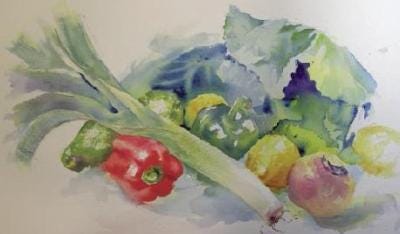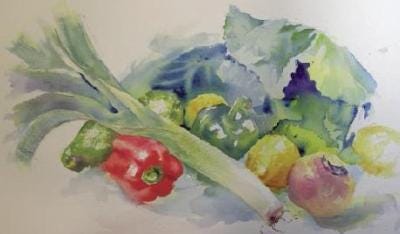
Kwanzaa is a holiday that shadows race and politics in America. Its origins are in the explosion of racial unrest in the 1960s, its popularity in the late 1980s-90s to the rise of Black culture and prosperity. Commercialism all but slashed the soul of it as soon as the Post Office issued a commemorative stamp for it in 1997. Today, Kwanzaa survives as a cultural celebration reoriented to the family and community, taught about in schools, and given hearty good wishes by politicians in and out of office, most especially in fraught election years.
In a year composed of 12 months of spurious wrangling over cultural and racial rights, it’s not surprising that this week of Kwanzaa has scored extra attention from the far right, who falsely labeled it as dangerous and deserving little, if any, respect.
No matter that, for one of the most lasting splendors of Kwanzaa is its base in the harvest, especially of produce and ingredients integral to Black cooking. I’m personally sort of on the losing end of holiday cooking at the moment—nothing like a COVID pile-up of children and relatives to zap your energy. But one perusal through the recipes listed on Kwanzaa Culinarians and I’ve come up with a menu that makes me twitch: apple and roasted beet salad, smoked turkey and cabbage, caramelized onion and scallion cornbread, and pineapple upside down hummingbird cake. Just the name of that cake is a blessing, isn’t it?
Go on over to this essential site and make your own Kwanzaa blessed.



Happy New Year, Pat. Looking forward to another year of America Eats!